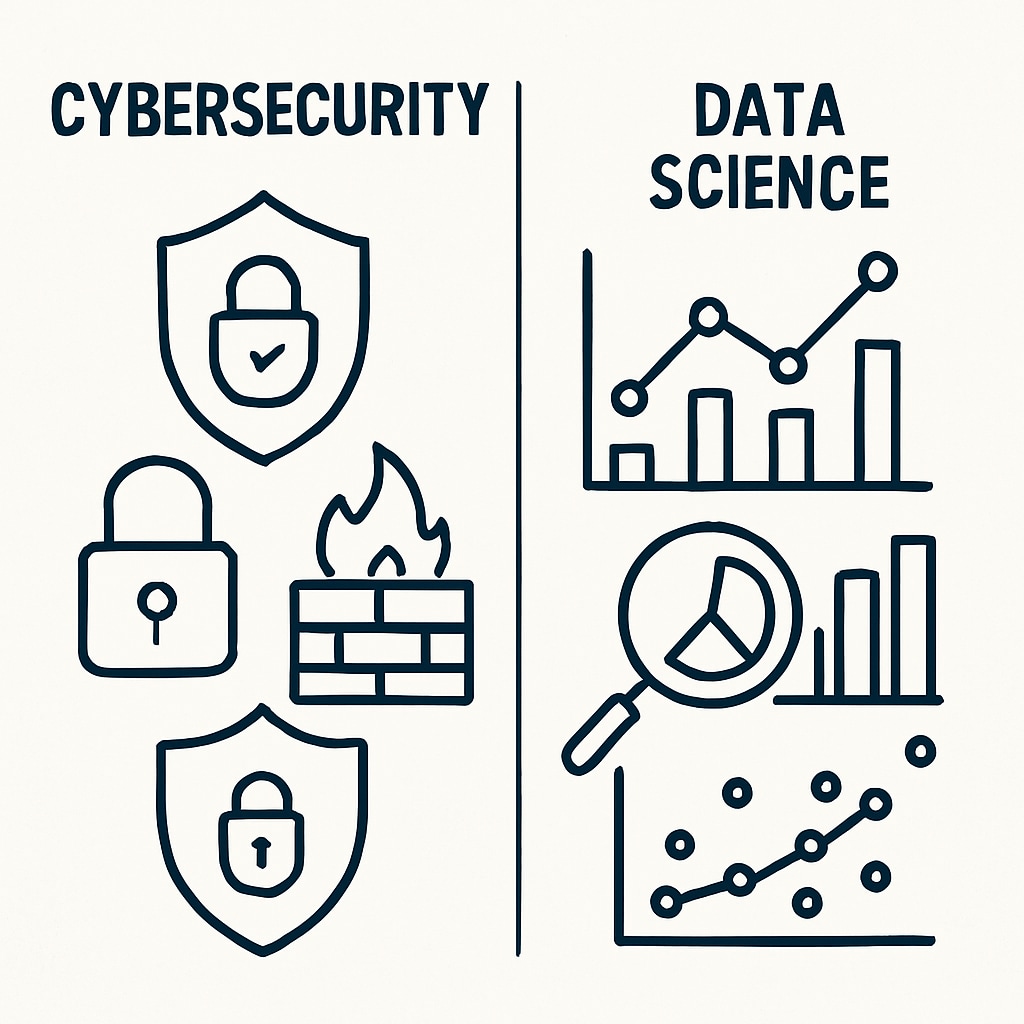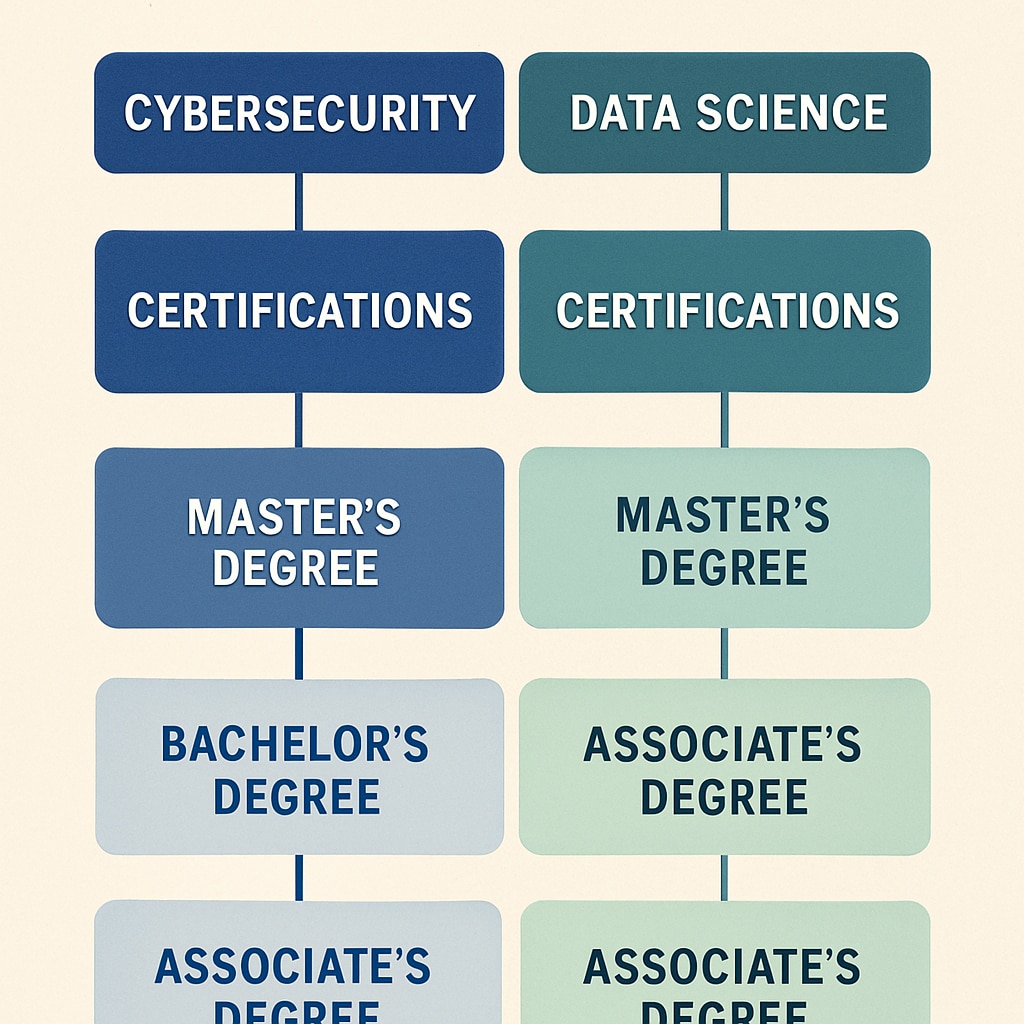The decision between pursuing cybersecurity or data science is an important one for K12 students planning their future careers. Both fields offer exciting opportunities, but they require different skill sets, offer unique career paths, and suit various personality traits. In this guide, we’ll break down the key considerations for making an informed decision about these two thriving industries.
Cybersecurity vs. Data Science: Understanding the Basics
Cybersecurity focuses on protecting systems, networks, and data from cyber threats, such as hacking, malware, and phishing attacks. Professionals in this field work to identify vulnerabilities, implement security measures, and ensure overall system integrity. On the other hand, data science revolves around analyzing large datasets to extract meaningful insights. Data scientists use statistical methods, machine learning, and programming to solve complex problems and drive data-driven decision-making.

Key Skills and Educational Pathways
Both fields demand specialized skills, but with distinct differences:
- Cybersecurity: Requires knowledge of network architecture, encryption, ethical hacking, and cybersecurity tools like firewalls. Popular certifications include CompTIA Security+, Certified Ethical Hacker (CEH), and CISSP.
- Data Science: Demands proficiency in programming languages like Python and R, statistical analysis, machine learning, and data visualization. Certifications such as Google Data Analytics and IBM Data Science are valuable for entry-level positions.
Educationally, cybersecurity often leans towards computer science degrees with a focus on security systems, while data science integrates mathematics, statistics, and computer science disciplines.

Career Prospects: Job Roles and Salaries
Both industries offer lucrative career paths. Here’s a comparison:
- Cybersecurity: Common roles include security analyst, penetration tester, and security architect. According to U.S. Bureau of Labor Statistics, cybersecurity analysts earn a median annual salary of $102,600.
- Data Science: Typical roles include data analyst, machine learning engineer, and business intelligence developer. Data scientists often command salaries exceeding $100,000, as reported by Glassdoor.
Both fields are projected to grow significantly in the coming years, driven by increased reliance on technology and data across industries.
Personal Traits and Interests: Finding the Right Fit
The choice between cybersecurity and data science often comes down to personal aptitude and interest:
- Cybersecurity: Ideal for students who enjoy problem-solving, critical thinking, and staying ahead of cybercriminals. A strong sense of ethics is crucial.
- Data Science: Suitable for those passionate about mathematics, analytics, and uncovering patterns in data. Creativity and curiosity are key traits.
It’s important for students to reflect on their strengths and consider how their interests align with the demands of each field.
Preparing for the Future: Early Steps for K12 Students
K12 students looking to prepare for these fields can take several proactive steps:
- Enroll in STEM courses such as computer science, mathematics, and statistics.
- Participate in coding bootcamps or cybersecurity workshops.
- Explore internships or mentorship opportunities to gain hands-on experience.
- Engage in extracurricular activities like robotics clubs or hackathons.
By building foundational skills early, students can set themselves up for success in these competitive industries.
Conclusion: Choosing between cybersecurity and data science is a significant decision for K12 students. By considering skills, career prospects, and personal fit, students can embark on a rewarding career path that aligns with their interests and abilities.


